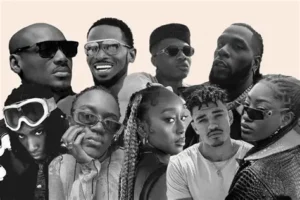When Afrobeats Hits a Rut: Is the Sound Losing Its Groove?
Once upon a time, you couldn’t scroll through TikTok, Instagram, or Spotify without hearing a catchy hook from Burna Boy, Wizkid, Tems, or Rema. Afrobeats had the world in a chokehold vibrant, fresh, and unapologetically African. Fast-forward to 2025, and something feels different. The beats still slap, but the buzz? Not quite the same.
Afrobeats isn’t dead, but it’s definitely in a slump. After years of global dominance, the genre seems to be losing momentum not for lack of talent, but perhaps because the formula that once worked too well is now wearing thin.
The Energy Dip
Over the past year, fans and insiders alike have noticed a drop in excitement around new Afrobeats releases. The genre’s signature fusion of rhythm, melody, and swagger hasn’t vanished, but the thrill that once made every release feel like an event has dimmed.
The market has become crowded with hundreds of new artists chasing the same sonic space, and producers recycling familiar rhythms to chase streaming numbers. The magic that once felt effortless now feels, well, algorithmic.
When Innovation Gets Tired
The problem isn’t talent; it’s stagnation. Afrobeats once thrived on experimentation mixing highlife, dancehall, R&B, and local street sounds into something uniquely electric. Now, many songs sound like a remix of last summer’s hit.
Part of that fatigue comes from the global spotlight. As the sound gained traction in London, New York, and Paris, many artists started tailoring their music for global playlists rather than homegrown energy. The result? A safer, flatter version of what once made Afrobeats thrilling the unpredictability, the grit, the cultural flavor.
The Globalization Trap
Ironically, international fame may have been a double-edged sword. As Afrobeats crossed borders, the pressure to maintain global appeal increased. Artists began leaning toward Westernized production styles, smoothing out the rough edges that made the genre so distinct.
When a sound becomes global, it often risks losing its cultural fingerprint. Afrobeats built its empire on authenticity storytelling, rhythm, and emotional swagger not just chart metrics. The current phase feels like a fight between staying true to its roots and feeding a global machine that wants the next viral hook.
Too Many Hits, Too Little Impact
In 2020–2022, every few months brought a new anthem that dominated both Lagos clubs and global charts. In contrast, the past year has been quieter. There’s still an ocean of releases, but fewer songs are breaking through in a way that shifts the culture.
It’s not that Afrobeats stopped producing good music, it’s that everything sounds like a hit, and in the process, nothing stands out. Oversaturation has made success feel diluted. The lines between great, good, and forgettable are blurring fast.
Industry Growing Pains
Beyond the music itself, Afrobeats faces deeper structural issues. The industry’s growth has outpaced its infrastructure. Poor royalty systems, weak rights management, piracy, and uneven revenue distribution make it hard to sustain long-term careers.
Many emerging artists rely on viral moments rather than solid business models, creating a cycle of short-lived fame and quick burnout. It’s a system designed for instant gratification, not cultural longevity.
A Moment of Reckoning
So, where does Afrobeats go from here? The genre has two choices: evolve or plateau. This isn’t a death sentence; it’s a turning point.
If the last few years were about global domination, the next few should be about redefinition. The artists who will shape Afrobeats 2.0 are those willing to take creative risks, draw from deeper African traditions, and tell stories that feel rooted, not repackaged.
The next big wave might not come from copying what worked, but from rediscovering what made the sound irresistible in the first-place energy, identity, and boldness.
Cycles of Sound
Every genre faces this phase. Hip-hop did. Dancehall did. Even pop music goes through dry spells. Afrobeats is now entering its reflective era where the hype cools, and the real innovation begins.
It’s less about decline and more about growing pains. The genre has gone global, and now it must mature to stay relevant. The artists who can balance mass appeal with genuine creativity will define the next decade.
The Groove Isn’t Gone, It’s Just Evolving
Afrobeats still rules playlists, parties, and global festivals, but it’s no longer enough to rely on past formulas. The world has heard the sound now it’s listening for the next version of it.
If Afrobeats wants to stay at the center of global pop culture, it needs to bring back what made it special risk-taking, originality, and a little bit of chaos. Because at its best, Afrobeats wasn’t just music; it was movement, identity, and pure joy.
Maybe the groove isn’t gone. Maybe it’s just catching its breath.
-
Afrobeats isn’t fading, but the energy has slowed.
-
Repetition, oversaturation, and global pressure are dulling the edge.
-
The genre’s next evolution will depend on artists reclaiming originality and cultural authenticity.
-
What looks like a decline might actually be a transformation in progress.



Leave a Reply